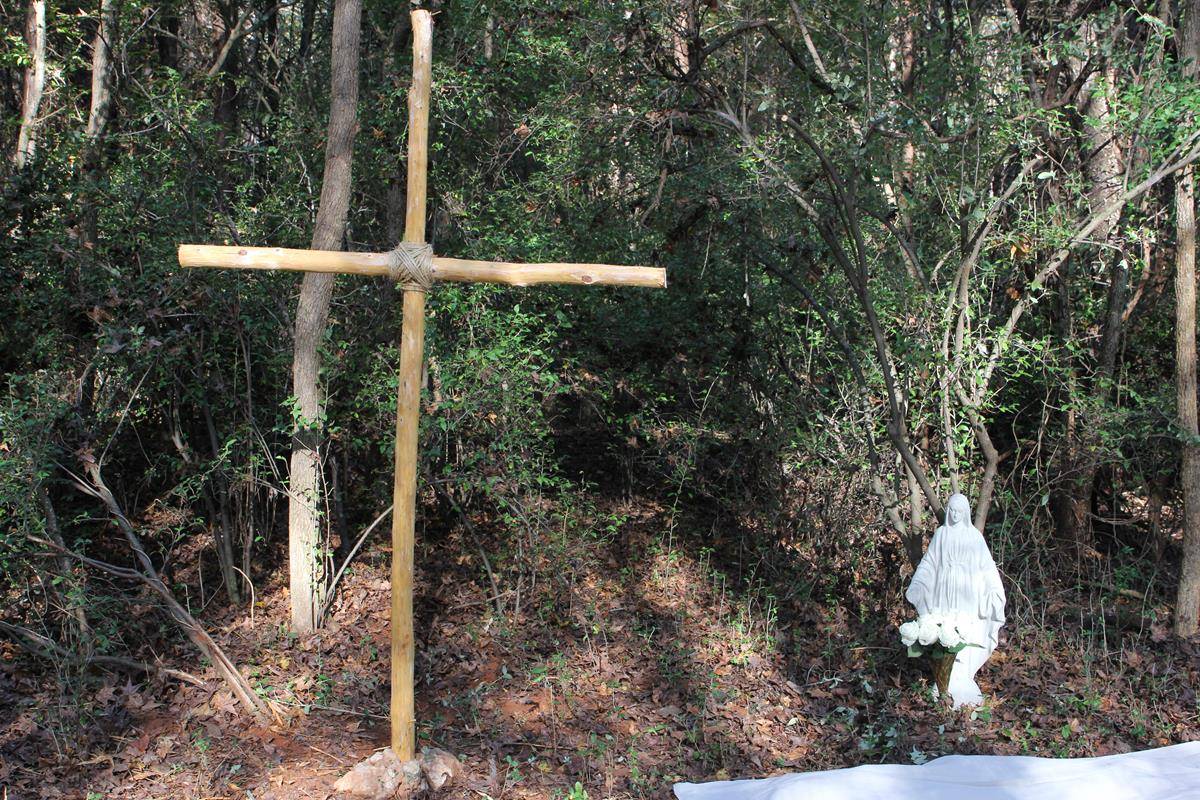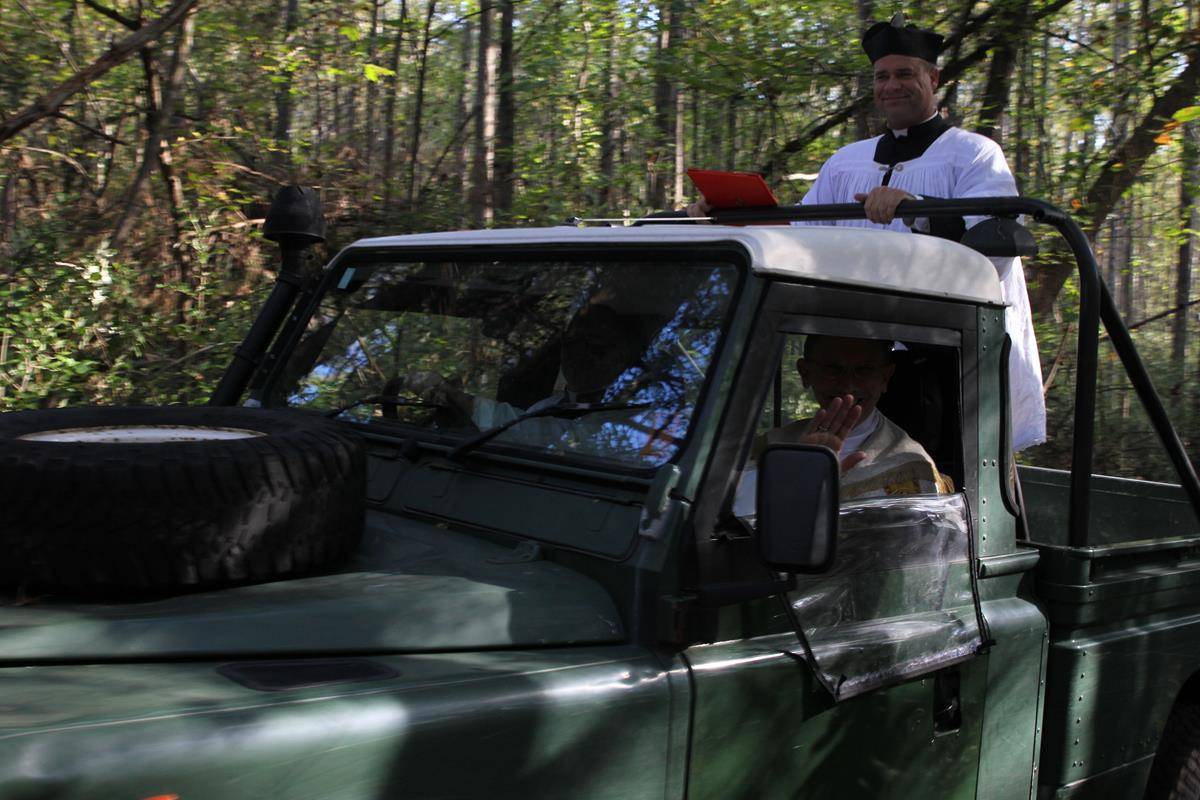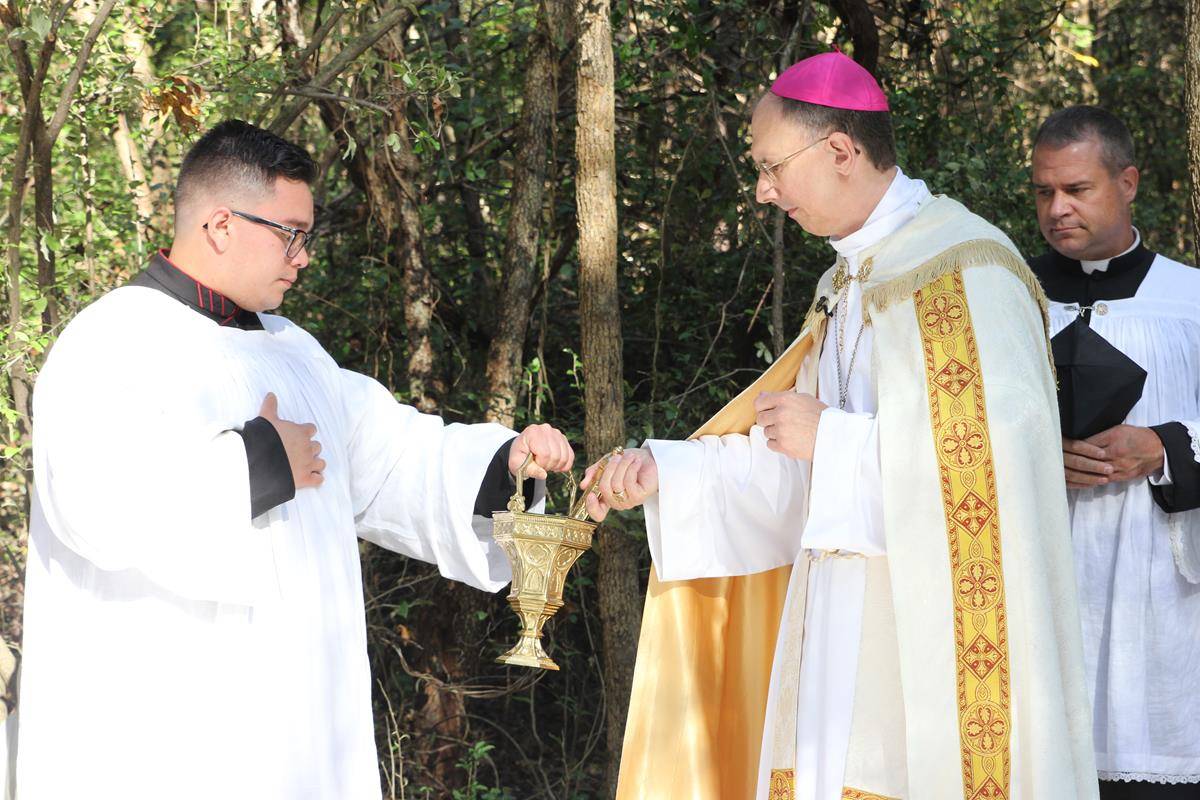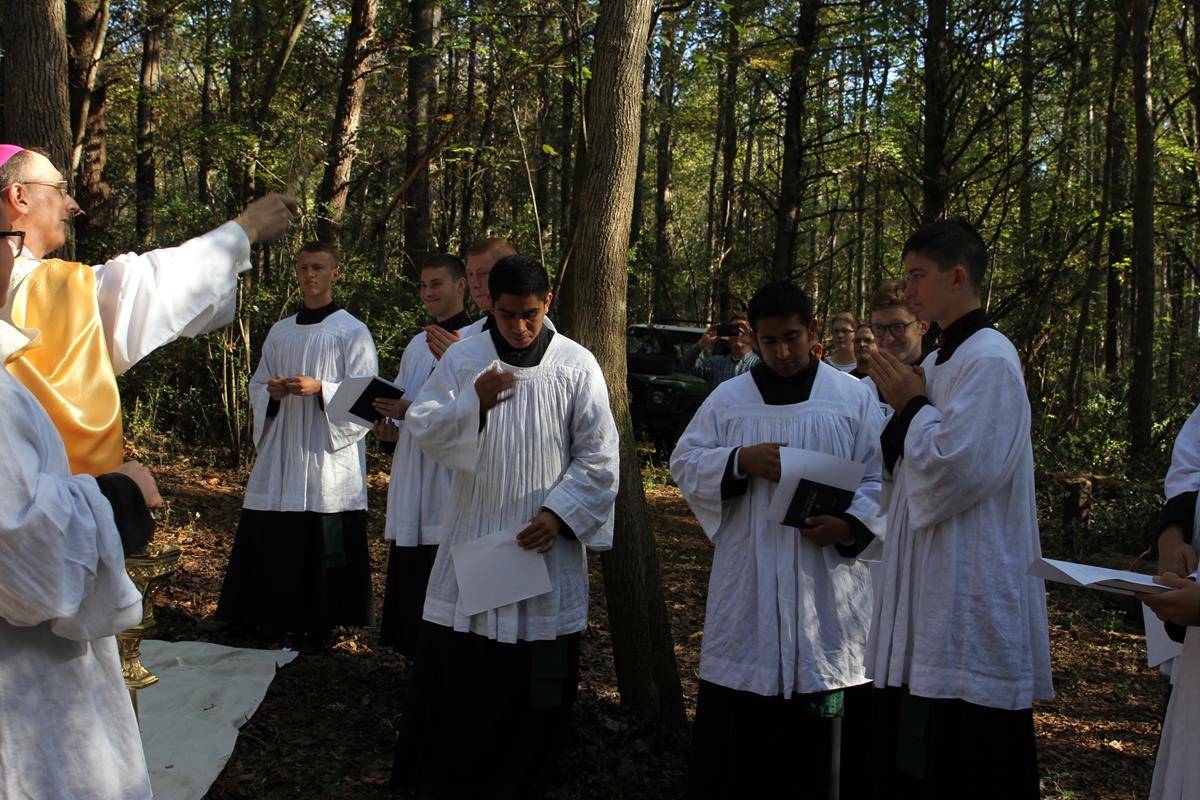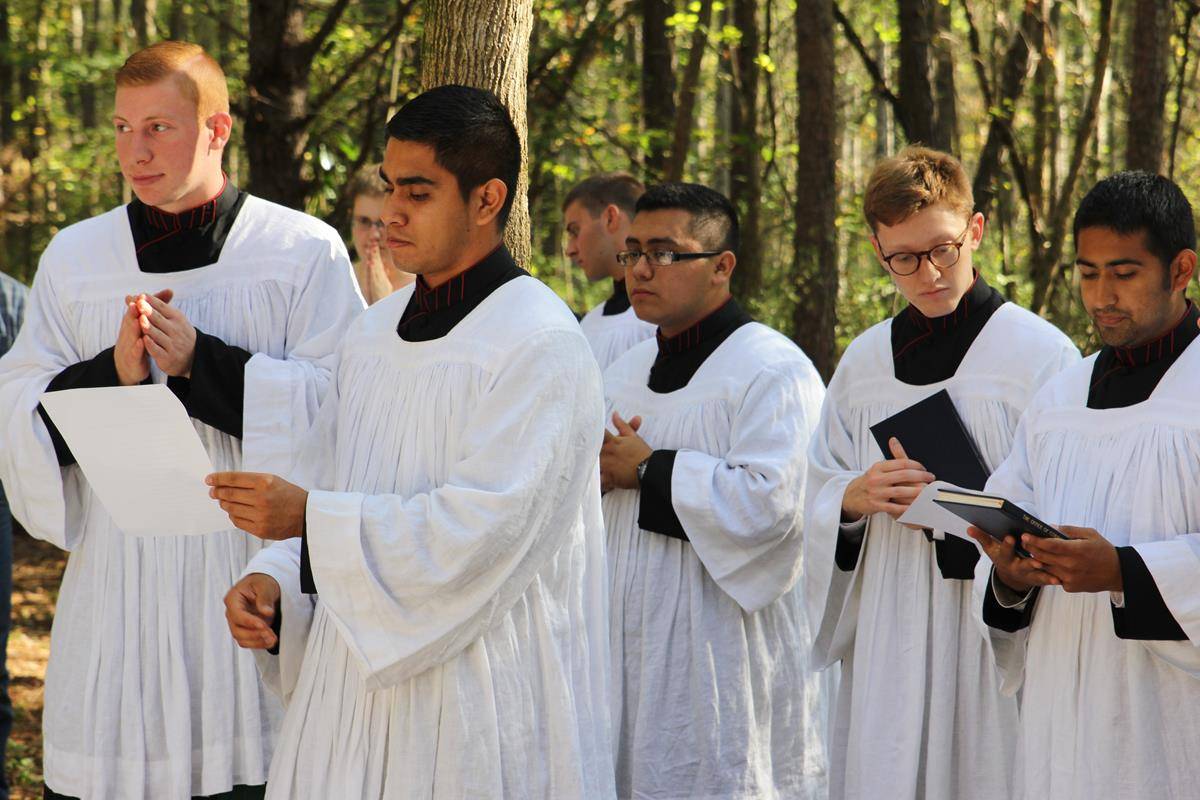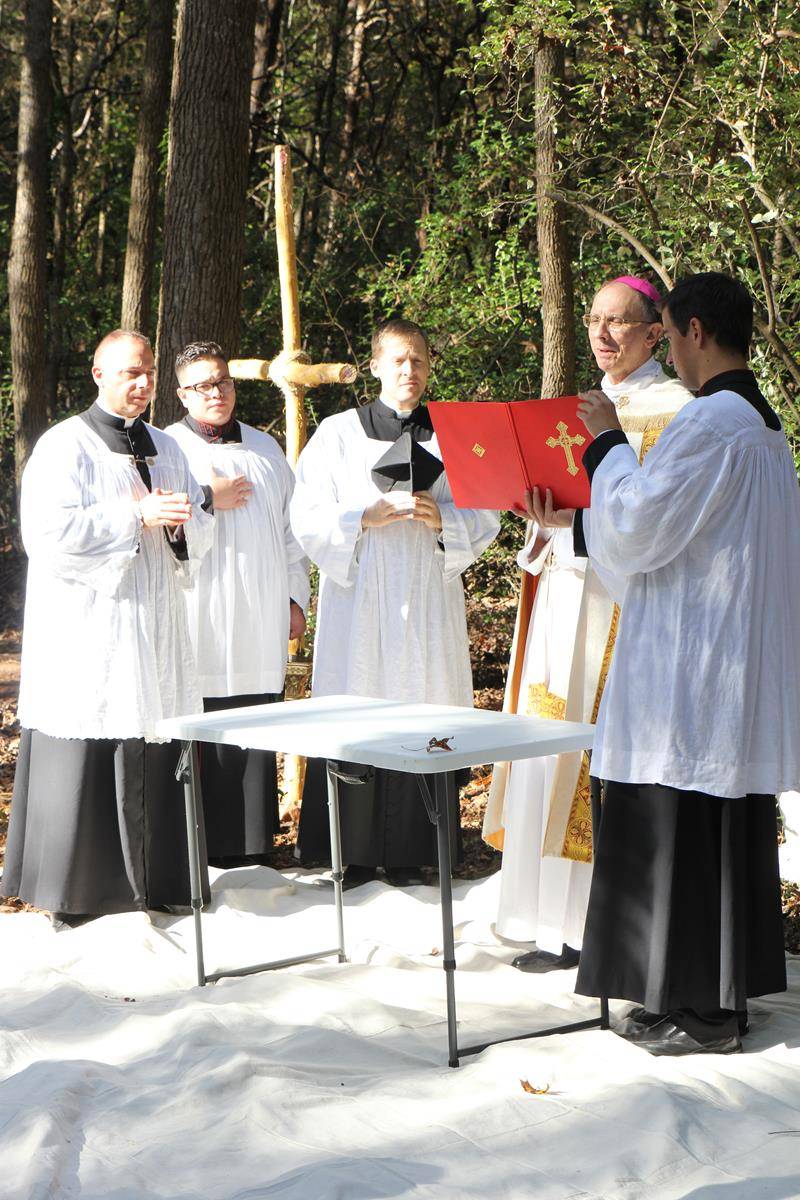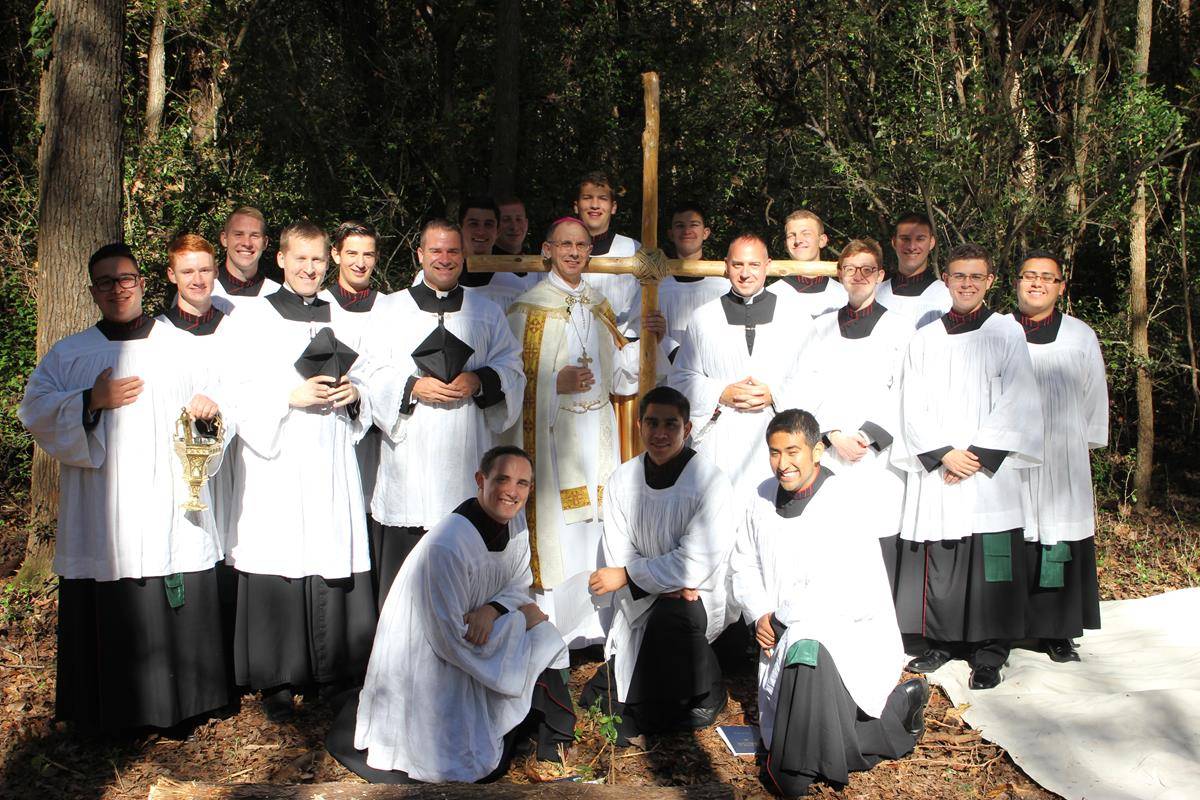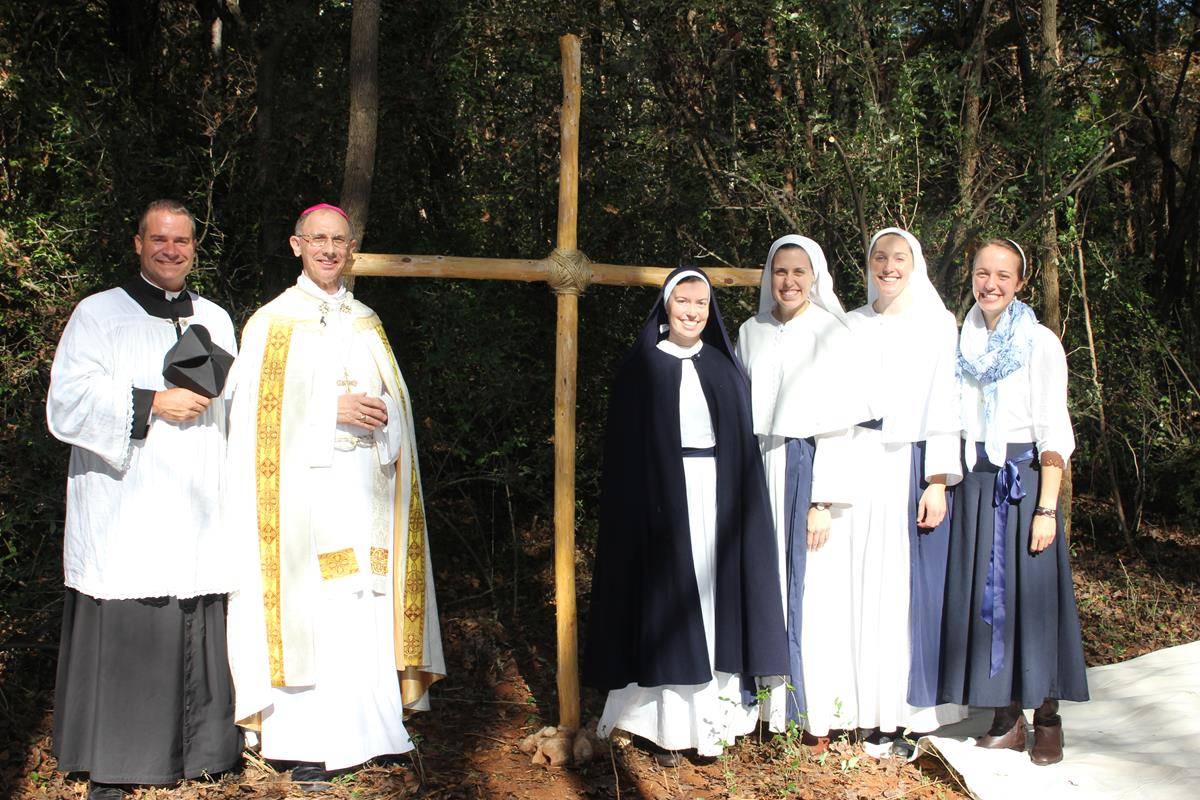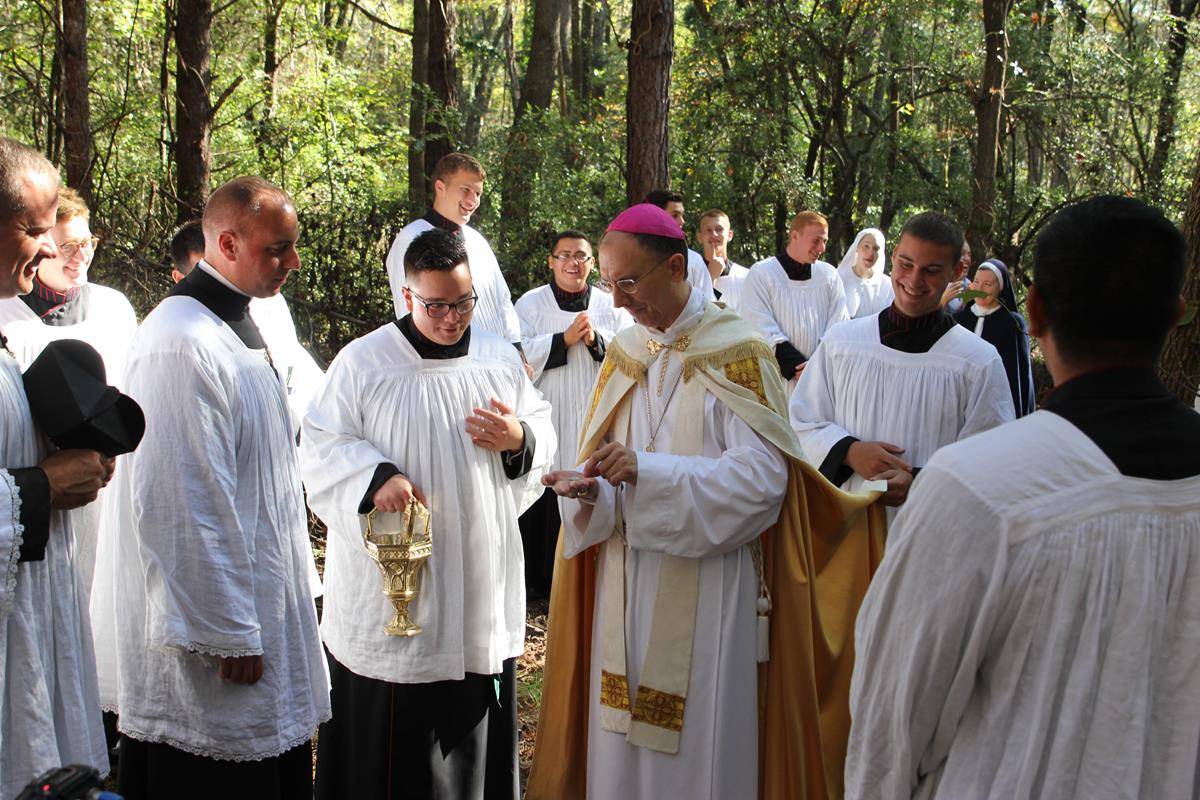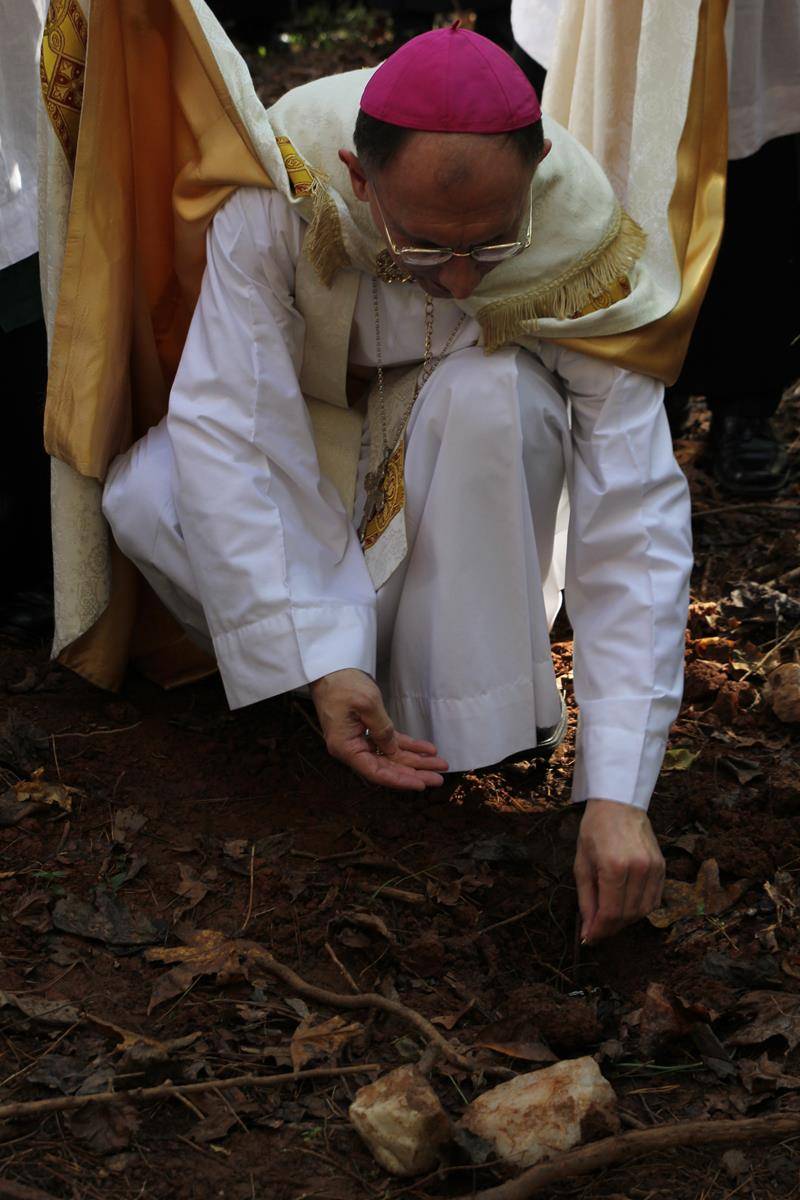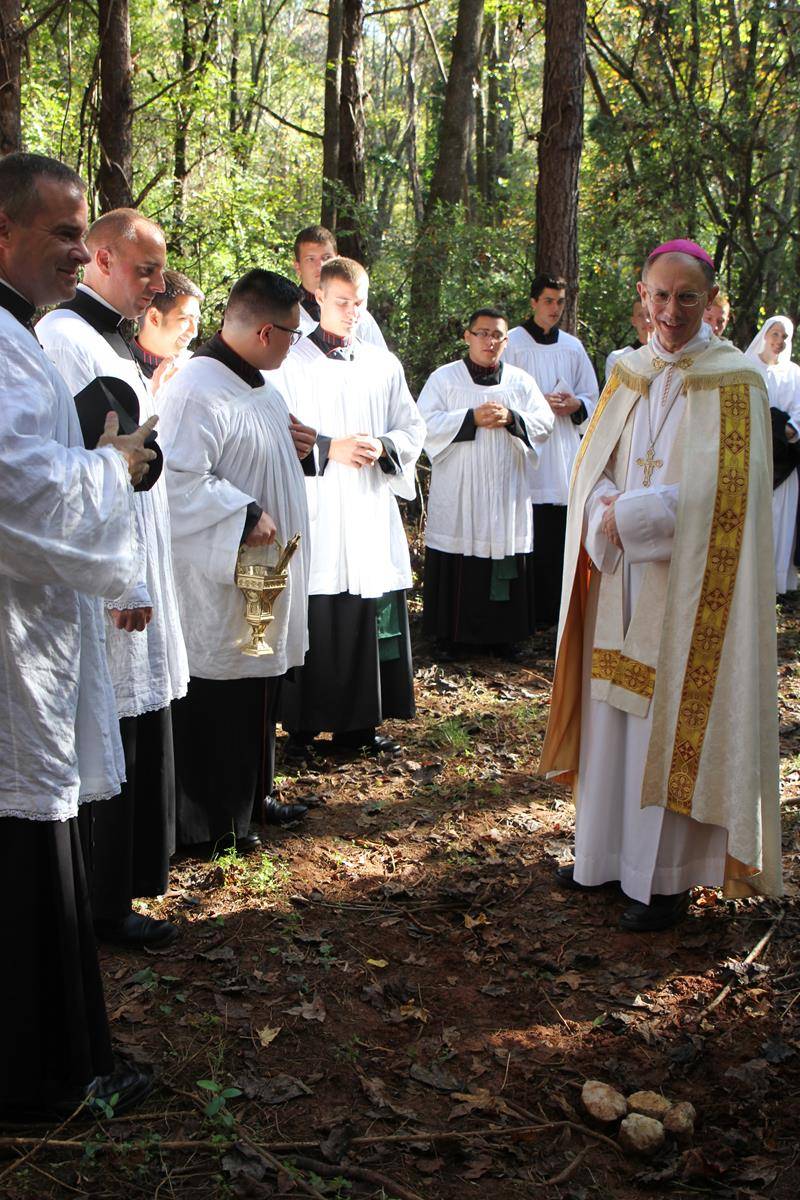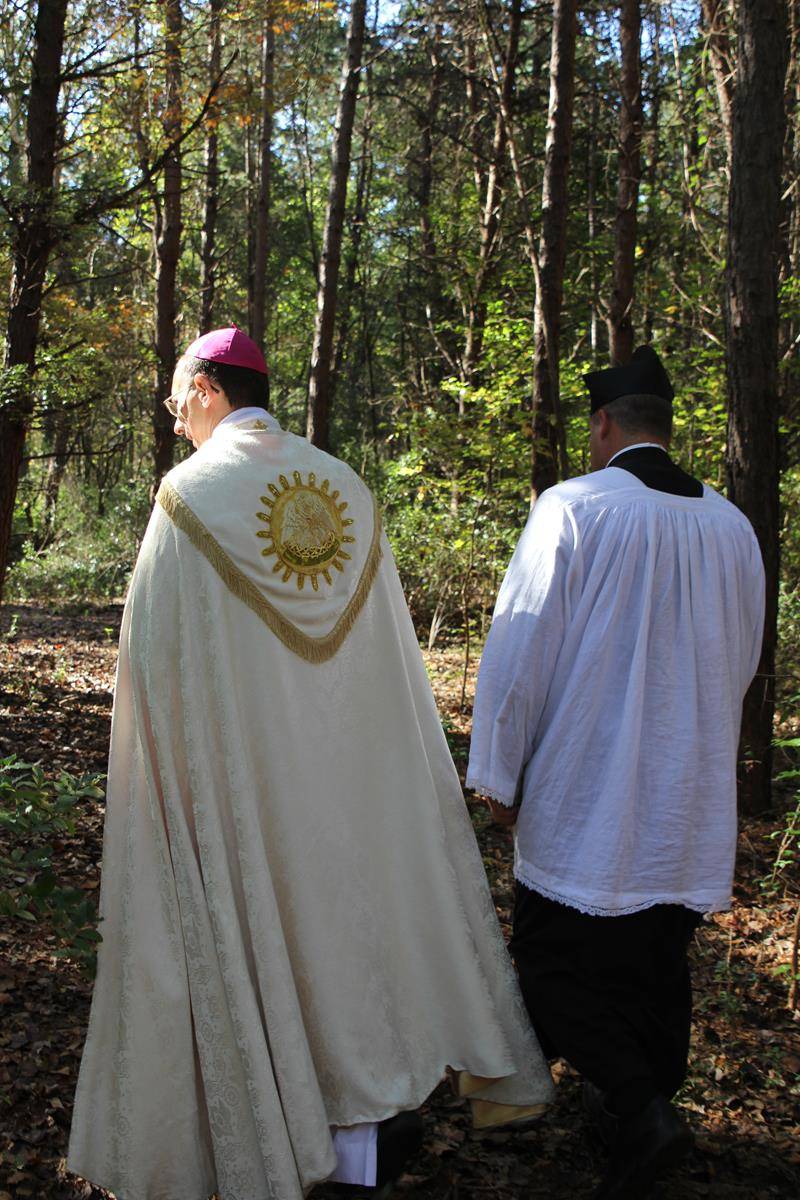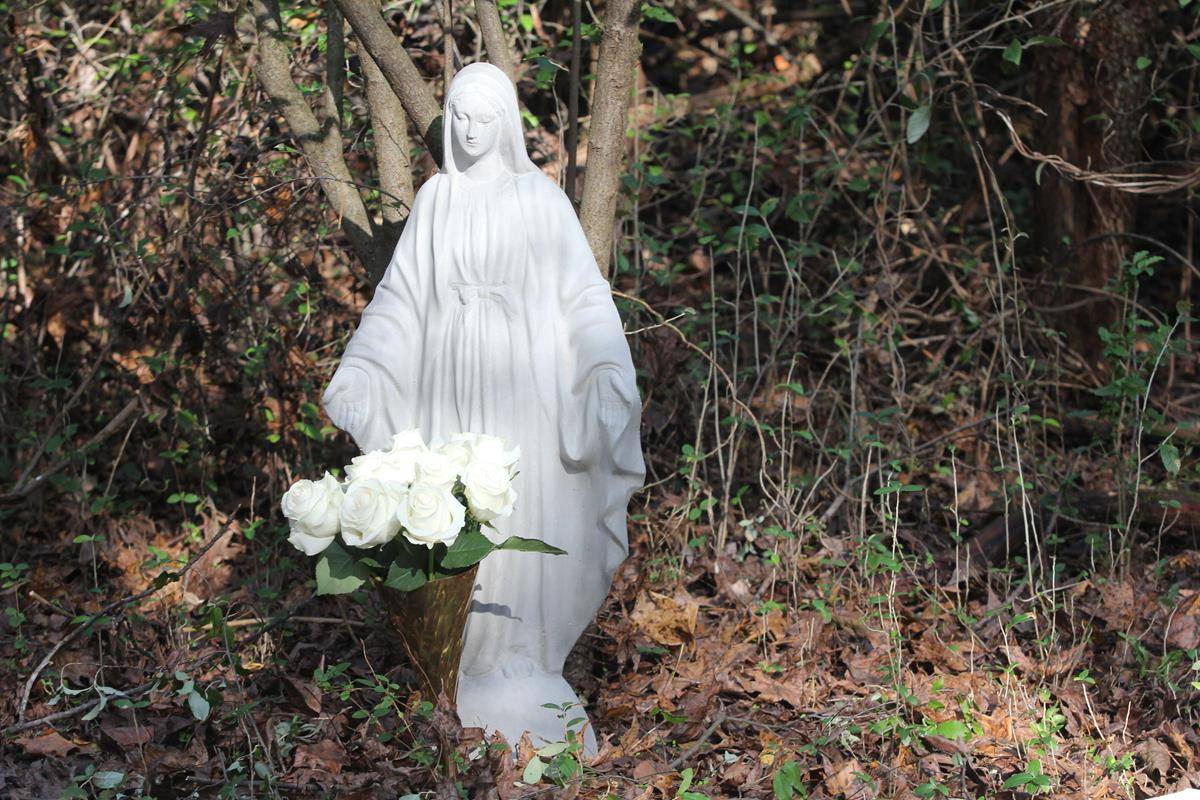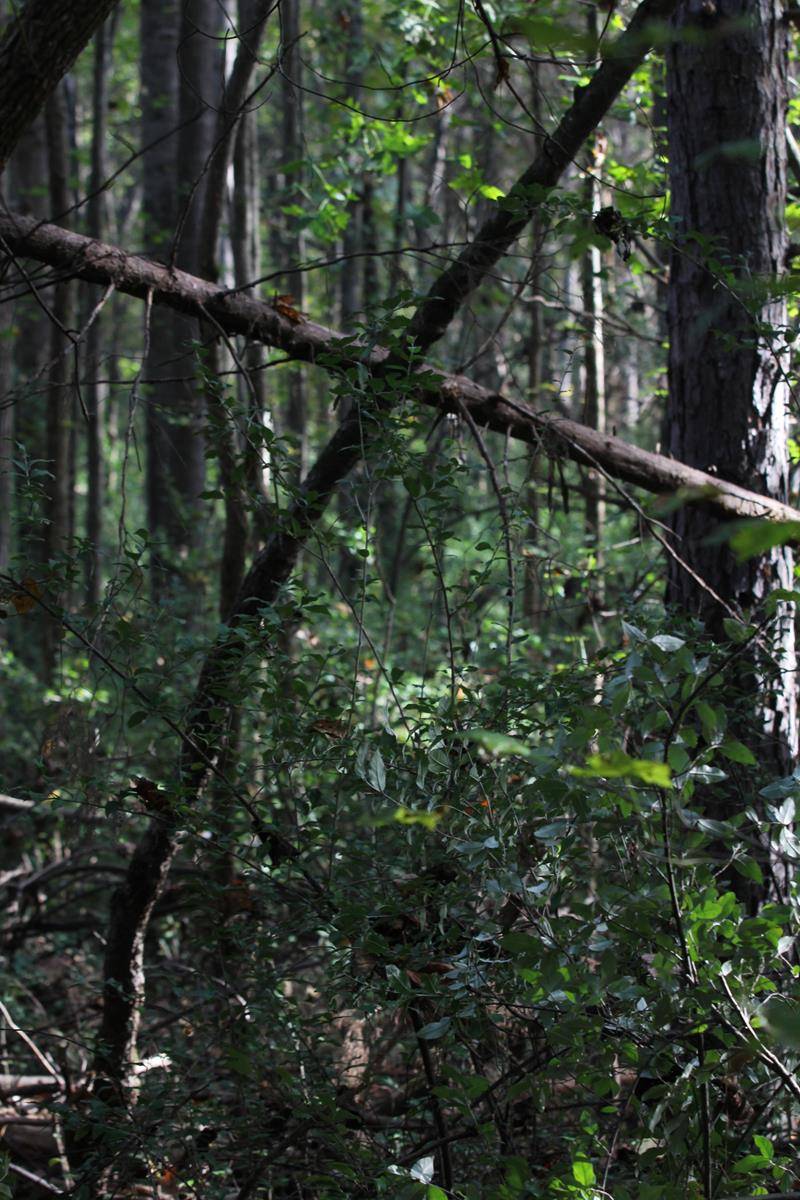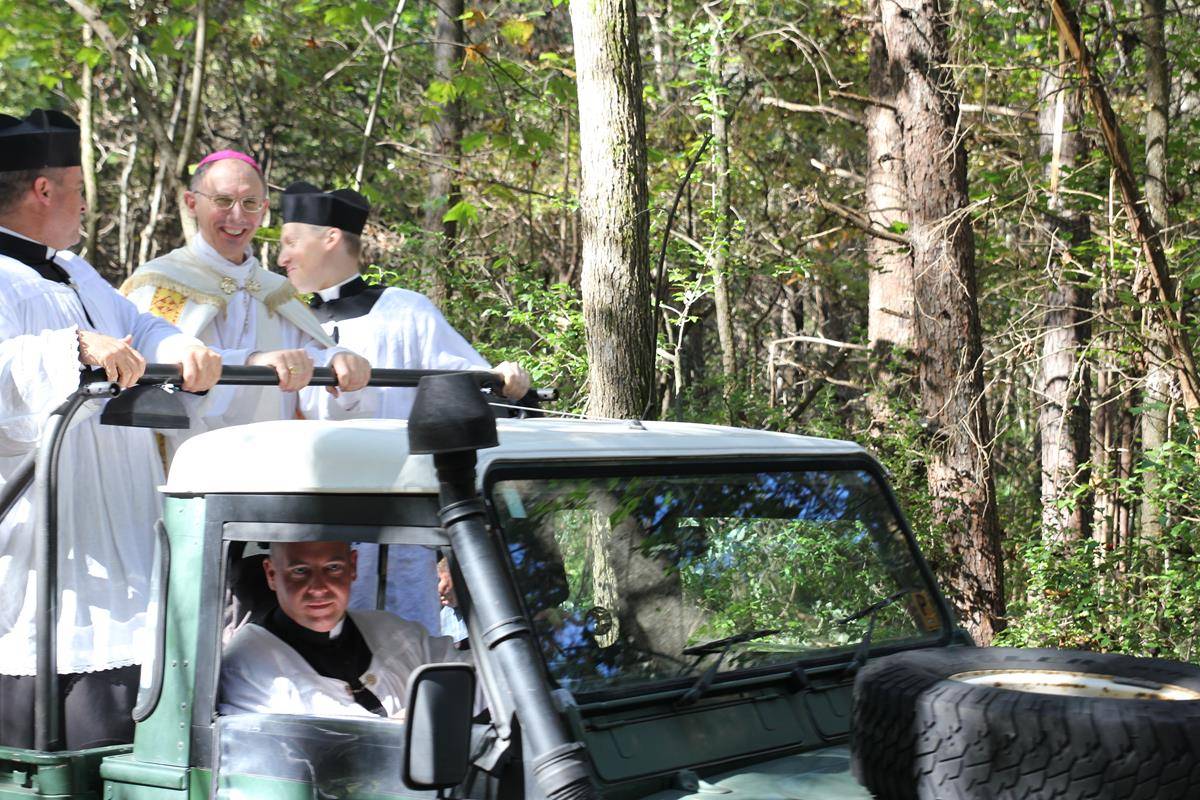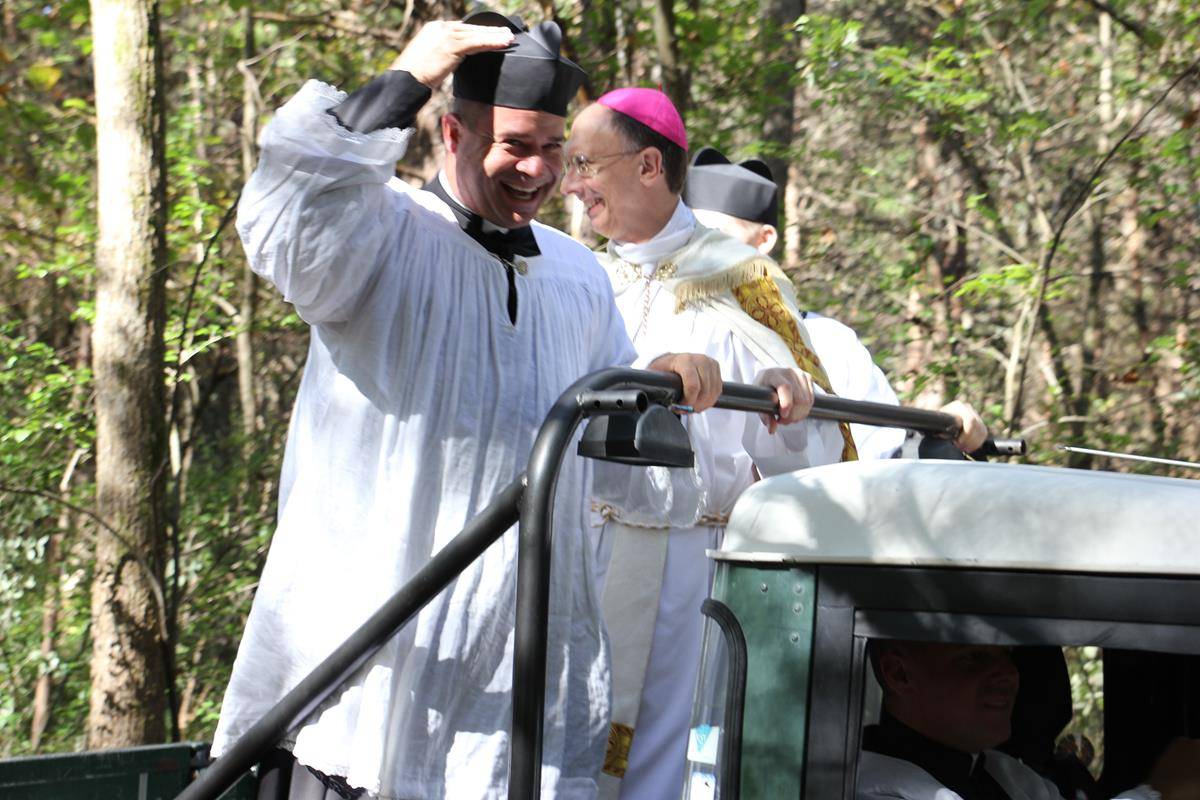CHARLOTTE — It has been six years since Belmont Abbey College, a Catholic liberal arts school near Charlotte, North Carolina, filed the first lawsuit challenging the federal contraception mandate.
“It’s hard to believe it’s gone on for this long,” college president William Thierfelder told CNA Oct. 9.
Last week, the Trump administration announced revisions to the HHS mandate, a regulation introduced by the Obama administration that required employers to fund employee health care plans covering contraception, sterilization, and some drugs that can cause early abortions.
The revisions considerably expand exemptions for religious groups and others with moral or ethical objections to the demands of the mandate.
Thierfelder said he is grateful that the current administration has acknowledged the original mandate as violating the right to religious freedom and is taking action to correct it.
Founded by Benedictine monks, Belmont Abbey College adheres to Catholic teaching on the sanctity of human life and sexuality.
When the HHS mandate was unveiled in 2011, Thierfelder knew the college could not in good conscience comply.
“We actually filed in November 2011, and it’s kind of interesting how we became the first ones to sue the federal government, because you would think it’s the most unlikely of all places – this little Benedictine monastery and college in the south,” he said.
“We had some issues with other governmental agencies prior to the mandate coming out,” he explained. “And so when this mandate did come out, we were particularly sensitive to what it was saying…I think we knew where this was going to go, and we just said, ‘We’ve got to do something about this now, before it’s imposed on us’.”
Thierfelder knew several people at the Becket Fund for Religious Liberty, and they discussed the possibility of filing a lawsuit. He had expected to be joined in his initial filing by numerous other plaintiffs, particularly Catholic employers. But for various reasons, other organizations were not ready to take legal action yet, so Belmont Abbey decided to move forward as the lone plaintiff.
Over the next year, however, additional lawsuits would start to pour in.
“When people saw this little Catholic college in the south with no resources suing the federal government, I think it sort of woke people up to say, ‘I guess we should do something too.’ And from that point, a couple of Protestant colleges were next…and then little by little it started, and then there was kind of an avalanche.”
Ultimately, more than 300 plaintiffs from across the country would file lawsuits challenging the mandate. These included dozens of religious charities, universities, and Catholic dioceses, as well as individuals, U.S. states, and for-profit companies whose owners opposed the mandate on religious grounds.
Thierfelder described the months that followed as a “legal chess game” with various lawsuits receiving different initial rulings based on whether they were in favorable or unfavorable court districts, and the varying strength of individual cases.
With re-filings due to legal technicalities, and several cases combining as they worked their way through the courts, the years that followed were filled with waiting and uncertainty.
“It’s been a wild ride,” Thierfelder said, “and I’m very, very happy about what just came out, although it’s not over yet.”
Belmont Abbey’s case, like many others, will now need to be considered by a court with the newly announced possibility for an exemption taken into account.
While the mandate revisions offer strong reason to believe that Belmont Abbey will receive a favorable resolution, Thierfelder said that in his mind, the big-picture battle is not over.
“I still see us at the beginning of this, because this was still a very narrow exemption, the way it was structured. So although this may be good for us, there may be other businesses and individuals who still have issues with this.”
He also noted that the Oct. 6 revision is an “interim rule” rather than a final rule. Additionally, several states and organizations have threatened legal action against the modifications to the mandate, and a future administration could always attempt to change the rules back.
“I think we’ve got to be pretty resolute. I’ve said this from the beginning…I really do believe you’ve got to have the complete resolution that you are willing to die for what you believe,” he said.
“In our country, I don’t think it’s going to come to that,” he said, “but having dealt with this for so long, and having seen the arguments on the other side … it really almost seems all or none. Either you get what you want or they get what they want, and there’s no in-between ground at this point. So it’s unfortunate, but that’s where we are.”
In general, the Belmont Abbey community has been very supportive of the college’s decision to take legal action against the mandate over the last six years, Thierfelder said.
“I think it’s been an education for everybody, in a lot of ways: how our government works, what religious liberty is. I think at the beginning, people thought, ‘Is the HHS mandate an important issue, and what it is really about?’ and I think what people started to see is that this is a detail, but it was really infringing on our religious liberty.”
Thierfelder also hopes that the general public recognizes religious liberty as a right inherent to every human being.
“Because organizations were continually discussed – be it a religious organization like Belmont Abbey College or Hobby Lobby or something else – it could seem like this was more about organizations somehow fighting for religious liberty, when in fact this is a right that every human being has,” he said.
Moving forward, the Belmont Abbey College president said he will continue to pay careful attention to religious freedom issues.
“I’ve really pushed for religious liberty. Not that from a Catholic perspective we can’t very readily defend our beliefs on contraception or abortion or any other important issue related to the human person and relationships. But I think the way to approach this is based on religious liberty, because it is an inalienable right that everybody has been given,” he said.
“We certainly could argue the individual detailed cases or facts that comes to us, but religious liberty is an issue we need to say focused on.”
– By Michelle Bauman, CNA/EWTN News
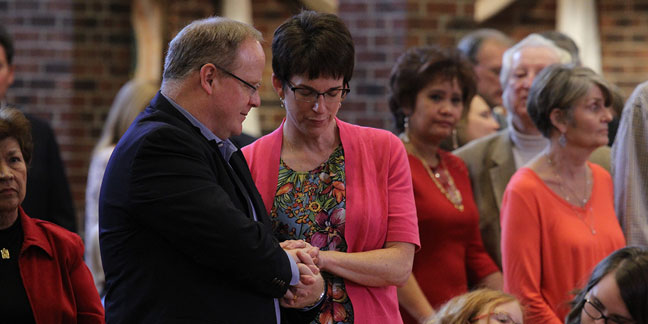 CHARLOTTE — Married couples celebrating special anniversaries this year were the invited guests of Bishop Peter Jugis Oct. 22 at St. John Neumann Church. The annual wedding anniversary Mass honors couples who have been married 25 years or more. Sponsored by Catholic Charities Diocese of Charlotte, the diocesan event includes a reception with the bishop after Mass.
CHARLOTTE — Married couples celebrating special anniversaries this year were the invited guests of Bishop Peter Jugis Oct. 22 at St. John Neumann Church. The annual wedding anniversary Mass honors couples who have been married 25 years or more. Sponsored by Catholic Charities Diocese of Charlotte, the diocesan event includes a reception with the bishop after Mass.
“I am happy to welcome you to this Holy Mass in honor of your wedding anniversaries,” he told more than 50 couples who, with family members, were present at the Mass.
Drawing from the special readings selected for the anniversary Mass – Gen 2:18-24, 1 Cor 12:31-13:8, and the Gospel of John 15:12-16 – Bishop Jugis reminded those present that these readings are the ones recommended for a wedding Mass.
“With these readings and with this Mass, we are remembering the day that you pronounced your wedding vows and began to live your marriage,” Bishop Jugis told them.
“I take this opportunity now to thank you for the witness of your love for each other and your love for the Lord, which you so generously in the past and for years in the future will be demonstrating, to build up not only your own families but also to build up the Body of Christ, the Body of the Church.”
Bill and Margaret Johnson, parishioners of St. Thérèse Church in Mooresville, attended the Mass to commemorate their 50th wedding anniversary. The couple is originally from Cincinnati, where they were married in St. Bartholomew Church. They have a son and daughter and four grandchildren. The couple brought up the offertory gifts at the Mass.
“The only thing you learn is to say, whatever it is, is: ‘I’m sorry,’” joked Bill Johnson when asked to share the secret to being married 50 years.
Margaret Johnson added, “Communication is the key. You have got to tell each other what is on your minds.”
They have always practiced their faith throughout their marriage, which is very important, they said.
Michael and Valerie Giggie, parishioners of Immaculate Conception Church in Forest City, are celebrating 25 years of marriage this year. Married at Belmont Abbey in 1992, they traveled from the mountains of western North Carolina to attend the wedding anniversary Mass. They have nine children ranging from age 6 to 24. Valerie Giggie read the first reading at Mass.
“We’re too stubborn to give up,” she said. “Prayer certainly plays a large part in that. Praying and also having children, teaching them as they grow older, helps.”
Amanda and Kevin McGoff were married 25 years ago at St. Paul’s Church in Pensacola, Fla. The couple has five children, ranging in ages from 8 to 19. The family are members of St. Mark Church in Huntersville, where Amanda serves as the music teacher for the preschool program.
“I think a good sense of humor goes a long way,” Kevin McGoff said. “I think the bishop nailed it when he talked about faith being the foundation. I went through RCIA before our marriage. Just starting off our marriage that way has really given our marriage that foundation.”
Amanda McGoff said she came to the realization through her years of study in the women’s group (Women of Joy Bible study at St. Mark Church) that she loves God more. “But that doesn’t take anything away from my husband. When I realize and accept and appreciate that I love God more, it makes it easier to love my husband and to be the wife that he needs me to be. It’s all about the unit and the grace we get from the covenant.”
In his homily, Bishop Jugis spoke of the covenant of marriage, a visible sign of the inexhaustible love of God.
“Love is faithful. Love is truth. Love is holiness, because it is living the very relationship with God – who is love,” he said.
True love is not self-seeking, he continued, but sacrificial in nature.
“That is the love that through the sacrament of holy matrimony He has planted right in the midst of your relationship, in the midst of your covenant with each other. By God’s gracious goodness, planted right in the middle of your family.”
Bishop Jugis shared the axiom: You are willing to give in proportion as you love. “I am sure you have discovered that over the 25, 50, 60 or more years you have been living together,” he told the couples.
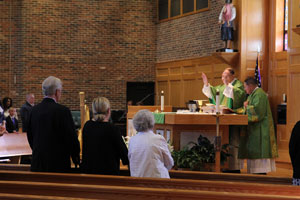 “How is it possible to arrive at such a milestone? Isn’t it because you have decided to place the Lord first in your life, first in your marriage? That you have decided to place His love and His grace as the foundation for your marriage?
“How is it possible to arrive at such a milestone? Isn’t it because you have decided to place the Lord first in your life, first in your marriage? That you have decided to place His love and His grace as the foundation for your marriage?
“And as a wise steward of God’s grace and God’s love, you knew where your success would be found: in the Lord, upon the strong foundation of His grace, of His love, of His holiness in your marriage.
“It is a sacrament that you are living. That sacramental grace – that grace of Jesus – is always there, available for you at any moment (so that) you can activate it and call it up for whatever need is in your common life of marriage,” he said.
— SueAnn Howell, Senior reporter
 BELMONT — Last Sunday morning under Carolina blue skies, Bishop Peter Jugis blessed the land that will become the permanent home for St. Joseph College Seminary.
BELMONT — Last Sunday morning under Carolina blue skies, Bishop Peter Jugis blessed the land that will become the permanent home for St. Joseph College Seminary.
The 86-acre wooded site sits along Perfection Avenue in Belmont, just north of Belmont Abbey College. Bishop Jugis was transported to the undeveloped site Oct. 22 on a large green four-wheeler – cheered on by the young men enrolled in the college seminary.
They gathered near what will be the main entrance to the college seminary, and the bishop sprinkled the ground with holy water and blessed it. Then he buried a small crucifix and several holy medals near the future site of the seminary chapel, including a St. Michael medal, Sacred Heart and Immaculate Heart medals and a Miraculous Medal.
In his remarks during the blessing rite, Bishop Peter Jugis spoke to the college seminarians about the need to foster devotion to the Blessed Virgin Mary, patroness of the diocese, and the importance of praying the rosary and asking for her intercession in their lives.
“It is quite providential that we gather during the month of the rosary, October, for this significant milestone in the history of this great institution which is St. Joseph’s Seminary, to be asking God’s blessing upon this land and the prayers, the intercession and the blessing of our Blessed Mother, and (also for) the prayers of the great St. Joseph,” he said.
The day was also significant as the feast of St. John Paul II, who had a particularly close devotion to Mary. The late pope ordained Bishop Jugis to the priesthood in 1983 in St. Peter’s Basilica in Rome, and in 2003 appointed him as the fourth bishop of Charlotte.
After he concluded the blessing rite, Bishop Jugis commented on the significance of the occasion, recalling the day in March 2016 when he announced the establishment of the college seminary.
“We’ve had a long process of getting to this day,” he said. “Several years, of course, of discerning the Lord’s will for our diocese and discerning the call of many young men for the priesthood. It is a great beginning.”
This site for the college seminary – “our own building and our own land,” he noted – will enable the diocese to continue responding to the Lord’s work in fostering local religious vocations.
That sense of ownership was also instilled in the young men by Father Matthew Kauth, rector of the college seminary.
The night before the bishop’s visit, the young men cleared an area near the future entrance, Father Kauth said. They erected a cross made from trees they cut down, then camped out overnight on the site.
“I wanted to be able, in some sense, to claim it as our own,” Father Kauth noted. “This is something that is going to hopefully be in the diocese for perpetuity. I want them to feel a sense of their claiming the land, claiming it as their home. Not just for seminarians, but for priests – for the priests to be able to come here. Also, for it to be a place of spiritual grace for the whole diocese to pray for the priesthood.”
“We are going to come out here over the course of the next several months and begin to clear out the land,” he continued. “We wanted it blessed first by the bishop. We will be bringing the seminarians out here with some frequency to pray the rosary and sanctify the land that is here. We’re going to make our own pathways and things.”
The diocese closed on the $1.4 million purchase of the 86-acre site, located approximately two miles from Belmont Abbey College, on Sept. 11.
Funds used to purchase the land came from donations earmarked for a permanent home for the college seminary.
St. Joseph College Seminary was founded in 2016 for undergraduate men discerning a possible religious vocation, before considering the step of enrolling in a major seminary for specific formation to the priesthood. Students work toward a bachelor’s degree in philosophy at Belmont Abbey College while experiencing a Benedictine-style communal life on their path of discernment.
Only in its second year, the college seminary’s enrollment is 16 men. Students are being temporarily housed in two separate residences adjacent to the campus of St. Ann Church in Charlotte – the former Poor Clares convent behind St. Ann School and a house on Hillside Avenue.
Neither building has room for more students.
Construction plans call for the college seminary to be developed in two phases, but even those plans are being modified as diocesan officials strive to accommodate the unexpectedly high enrollment.
Originally, the plan was to house up to 20 students in a 17,000-square-foot building, and future expansion planned to double that to 40 students.
Because enrollment is already at 16 men, diocesan planners have accelerated those plans, now moving forward with a 27,000-square-foot building that can house up to 40 men at the start.
Besides 40 dormitory-style rooms, the main building will include academic spaces, administrative offices, four faculty offices, a guest suite, a gathering space and refectory, chapel and study space.
The projected cost to complete the first phase is approximately $15 million, higher than the original project estimate of $7.5 million because the plans were enlarged to accommodate twice as many men, the original plans did not anticipate the need to buy land, and because of price increases in the construction market.
Fundraising for the college seminary totals $4.5 million so far.
Fundraising will continue outside the diocese this year, with fundraising work in the diocese expected to begin in the fall of 2018.
— SueAnn Howell, Senior reporter
CHARLOTTE — The Diocese of Charlotte has again passed an annual independent audit of its child protection procedures.
The yearly audit conducted in August by Stonebridge Business Partners of Rochester, N.Y., monitors U.S. dioceses’ compliance with the U.S. bishops’ Charter for the Protection of Children and Young People, which addresses the Church’s commitment to respond effectively, appropriately and compassionately to cases of abuse of minors by clergy or other Church personnel.
The diocese’s efforts to ensure the protection of children include criminal background checks and educational awareness programs on recognizing and preventing abuse. Auditors have found the Charlotte diocese in compliance with the Charter every year since its inception.
In the previous fiscal year (July 1, 2016, to June 30, 2017), the diocese conducted 4,068 background checks, which are required for all clergy, religious, employees and volunteers.
Since 2002, more than 48,900 adults have also received training in the safe environment awareness program entitled “Protecting God’s Children.” Last fiscal year, the diocese held 167 “Protecting God’s Children” workshops for 3,517 participants.
“Protecting God’s Children” helps adults learn to recognize the warning signs of abuse and the many ways that sexual abuse harms victims, families, parishes and communities. It teaches them appropriate ways to respond to suspicious behaviors and how they can help to prevent abuse.
The diocese has invested about $1.2 million over the past 13 fiscal years in the training program to prevent abuse.
The cost of these various child protection measures and the compliance review totaled $112,774 during the previous fiscal year.
The diocese provided financial assistance to, or on behalf of victims, totaling $9,540, all of which was for counseling and medical services. The diocese also incurred costs in connection with sexual misconduct lawsuits totaling $34,801.
Diocesan insurance funds and the diocesan general fund were used for payment. As in the past, none of these funds came from the Diocesan Support Appeal or from parish savings.
— Catholic News Herald
 CHARLOTTE — In his message for World Mission Sunday on Oct. 22, Pope Francis reminds the faithful that mission is at the heart of the Christian faith.
CHARLOTTE — In his message for World Mission Sunday on Oct. 22, Pope Francis reminds the faithful that mission is at the heart of the Christian faith.
“World Mission Day, promoted by the Society of the Propagation of the Faith, is a good opportunity for enabling the missionary heart of Christian communities to join in prayer, testimony of life and communion of goods, in responding to the vast and pressing needs of evangelization,” he said.
Promoted by the Pontifical Mission Societies, World Mission Sunday is the annual worldwide Eucharistic celebration for the Missions and missionaries of the world. The special second collection taken up during Masses Oct. 21-22 is a global effort for the entire Church to provide for the building up of more than 1,000 local churches in Asia, Africa, the Pacific Islands and parts of Latin America and Europe.
Through the work of these churches and their witness to Christ, the poor receive practical help and experience God’s love and mercy, His hope and peace.
“The Pontifical Mission Societies are a precious means of awakening in every Christian community a desire to reach beyond its own confines and security in order to proclaim the Gospel to all,” Pope Francis explained.
“In them, thanks to a profound missionary spirituality, nurtured daily, and a constant commitment to raising missionary awareness and enthusiasm, young people, adults, families, priests, bishops and men and women religious work to develop a missionary heart in everyone.”
The Holy Father added, “World Mission Day, promoted by the Society of the Propagation of the Faith, is a good opportunity for enabling the missionary heart of Christian communities to join in prayer, testimony of life and communion of goods, in responding to the vast and pressing needs of evangelization.”
For more information about the Pontifical Missions Societies, go to www.propfaith.net/onefamilyinmission/default.aspx.
— SueAnn Howell, senior reporter. Pontifical Mission Societies contributed.


